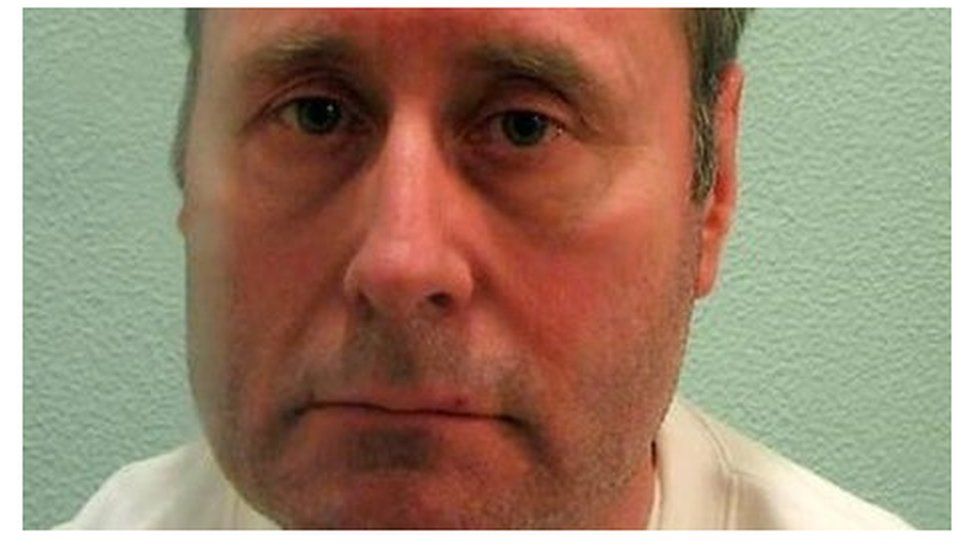Metropolitan Police appeal against Worboys rape ruling
- Published

John Worboys was jailed for life in 2009 for a string of sex attacks on women in his taxi
Police have launched an unprecedented appeal at the Supreme Court against a ruling that they failed victims of one of the UK's most dangerous rapists.
Judges said Scotland Yard had breached the human rights of two women because officers did not properly investigate and potentially apprehend John Worboys.
He was jailed for life in 2009 for more than 100 rapes and sexual assaults.
Monday's appeal could have profound implications for how police investigate serious sexual offences.
The case is so important to the law around police negligence that Theresa May, when she was still home secretary, intervened to support Scotland Yard.
The victims who sued
The two women in the case, known as DSD and NBV, were raped in 2003 and 2007 by John Worboys.
The black-cab driver drugged victims in his vehicle by offering them sedative-laced champagne, claiming he was celebrating winning a big cash prize.
The women were left confused, disoriented and with only a partial memory of what had happened.
Worboys was so confident he could get away with it that he even drove DSD to the police station so she could get help. Judges said if officers had taken his details - including, crucially, his cab registration - investigators may have identified him as the prime suspect.
NBV had some recall of the events of her attack and Worboys could be seen with her on CCTV - but officers dropped their investigation after failing to secure potential evidence of crucial links.
The black cab used by Worboys in his attacks
Police negligence
In a landmark 2014 judgement, the High Court awarded both DSD and NVB damages totalling more than £40,000, ruling the Metropolitan Police's failings had breached Article Three of the European Convention on Human Rights which bans inhuman or degrading treatment.
Until then, police couldn't be found to be negligent for generally failing to identify and apprehend an unknown suspect.
But if the Worboys ruling stands, it means they could be sued for the most serious of crimes that amount to inhuman or degrading treatment if they fail to conduct an effective investigation.
On Monday, Lord Pannick QC told a panel of five justices headed by Supreme Court president Lord Neuberger, that imposing an investigative duty on police raised policy concerns.
He asked the panel to allow the appeal so that a "dialogue" could take place with the European Court of Human Rights in Strasbourg.
Lord Pannick said there was a concern that any investigative duty would "reduce the efficacy of police investigations of crime".
He also argued that Article 3 did not give rise to an entitlement to damages for failings of a police investigation.
The hearing continues on Tuesday and a judgement will follow at a later date.
A spokesman for Scotland Yard said: "Our defence of these claims should not be taken as a reflection of any doubt upon the veracity of the claimants' accounts.
"The case has raised important arguments regarding the boundaries of police responsibility and liability and we believed that it was important for these principles to be tested before the courts."
What duties are the police under to investigate?
Repeated rulings have made clear the police are not under a general duty of care in relation to their investigation of crime
Judges in key cases have ruled the police can't be liable for a crime committed by someone else
There are legal duties to warn someone their life may be in danger if police have intelligence of a threat
The Worboys case expands the law by saying that the police have a duty to act if a victim is going to become the victim of inhuman and degrading treatment
The Home Office declined to comment ahead of the hearing as to why it had intervened in the case.
Its national strategy to end violence against women and girls says it wants to see an increase in victims coming forward and more investigations leading to successful prosecution.
Rachel Krys, co-director of the End Violence Against Women Coalition, said the police, like all other public bodies, must be held to account - and that would lead to more rapists being apprehended.
"If things go disastrously wrong with other public services, there is some form of redress," she said.
"In cases of gross negligence by the NHS, the victim or the family of the victim can sue. If the Metropolitan Police and the government get their way in this case there are no such mechanisms for dealing with the police in UK law.
"That is why it is so disappointing that the Met along with the UK government are now seeking to overturn this judgement."
- Published11 May 2015